SUMMARY
This is AI generated summarization, which may have errors. For context, always refer to the full article.
![[OPINION] Fiscal firestorm and the confident crusaders for transparency](https://www.rappler.com/tachyon/2023/10/fiscal-firestorm-confident-crusaers-transparency-october-3-2023.jpg)
The “parliamentary courtesy” granted to Vice President Sara Duterte by the members of the House on August 30, when she skipped direct scrutiny of her twin-office budgets, may have inadvertently triggered consequences surrounding an issue that overshadowed the entire budget deliberations and beyond.
This controversy – how confidential funds are allocated and spent by civilian agencies with typically no security-related mandate – was further amplified during the September 27 plenary debate on the proposed budget of the Office of the Vice President (OVP). Budget sponsor Marikina Representative Stella Quimbo disclosed that the disputed 2022 P125-million confidential funds of the OVP, previously believed to have been expended in 19 days, were actually used up in a mere 11 days.
This startling revelation also prompted deeper constitutional introspection. Initially, Congress seemed hesitant to delve into the matter anew. However, due to increased scrutiny, discussions around confidential and intelligence funds (CIF) became more apparent now compared to previous years’ budget deliberations. Calls for its scrapping are becoming louder among members of Congress.
The timing is pivotal, though. Of the proposed 2024 national budget of P5.768 trillion, the proposed CIF is a staggering P10.14 Billion, including allocations for both the Office of the President and the OVP. In contrast, the executive only proposes P9 Billion for its Rice Buffer Stocking Program, even with the looming supply crisis and the steadily rising prices of the country’s staple food.
Now, even the confidential funds of LGUs are also under close public scrutiny, given the equally large allocations also earmarked by local chief executives.
Amid this fiscal maelstrom, the members of the Makabayan bloc in the House of Representatives undeniably emerged as confident advocates for fiscal transparency and responsibility.
Parliamentary courtesy?
Recall that the bloc’s initial attempt to spotlight the issue of the OVP confidential fund during the committee budget presentation was thwarted by Majority members, citing the overused “parliamentary courtesy” granted to Executive Officials, which in essence shields these officials from direct public scrutiny.
However, the Makabayan bloc persisted. Their incisive insights during committee and plenary deliberations garnered public attention and approval, thanks in part to the live streaming of proceedings on social media platforms.
Many lauded their meticulous examination, particularly of the contentious CIF. For one, despite adversity, ACT Teachers Party list Representative France Castro has been instrumental in bringing the CIF debate to the forefront.
Alongside her are fellow Makabayan bloc members Kabataan Party list Representative Raul Manuel and Gabriela Women Party Representative Arlene Brosas. Together, this trio ensures that the basic sectors receive the attention they merit.
The next stage for further budget scrutiny is the Senate. At this point, the public expects Congress to genuinely reclaim its constitutional “power of the purse” and allow the CIF debate to lead to more judicious budgetary spending.
Public finance in the Philippines has always been a balance of admiration and skepticism. In the past, it was the debates on the now unconstitutional Priority Development Assistance Fund (PDAP), a euphemism for legislative pork barrel, that bedeviled the country. There was also the equally unconstitutional Disbursement Acceleration Program (DAP), another euphemism for presidential pork barrel.
Now, the major point of contention is the allocation of “confidential funds” that by their very nature, are opaque and often escape regular scrutiny.
Review guidelines
This secrecy makes holding these funds accountable challenging as they don’t undergo rigorous auditing process as other earmarked funds and are enticing for those seeking personal gains.
Even the Commission on Audit (COA) recognized the need to re-examine guidelines for CIF as contained in Joint Circular No. 2015-01, issued by the DBM, COA, DND, DILG, and the Government Commission for GOCC.
Given the potential pitfalls, the clarion call for fiscal transparency emerging from the CIF debate is both praiseworthy and vital. This call protects the public’s trust and the nation’s fiscal health, already compromised by deficit revenue collections and burdened by trillions in debt.
The constitutional diktat given to Congress over the nation’s finances ensures that the Executive cannot utilize the nation’s resources without legislative oversight. In an ideal world, checks and balances to prevent misuse would shield confidential expenses.
Yet, in an era still marked by political patronage and a series of pork barrel scandals, this power seems more symbolic than actual. Over the years, with minor realignments to cater to its members’ parochial interests, Congress has generally rubber-stamped the national expenditure program proposed by the Executive.
However, given the changing global economic landscape when many countries, including the Philippines, are grappling with severe post-pandemic financial crises, the “power of the purse” becomes even more imperative, not just as a fiscal tool, but in upholding the balance of powers, fiscal responsibility, and public accountability.
How can the government ensure these funds serve their intended purposes exclusively?
Undermining principles
A working democracy thrives on transparency and accountability. Awarding civilian agencies confidential funds undermines these principles. The growing chasm of trust between the public and the government is exacerbated by the fact that while officials can expediently spend P125 Million in 11 days, average Filipinos must grapple with a meager P610 daily minimum wage amid escalating living costs.
These “confidential” resources could be better utilized in sectors where their impact can be openly evaluated, such as more subsidies for state universities and colleges or funding for public hospitals and aid to farmers and senior citizens.
While there are those who argue that there are legitimate situations where such funds can probably prove beneficial, the potential for misuse is undeniable.
Former Supreme Court justice Adolfo Azcuna, for instance, recently proposed that Congress should now pass a law establishing a transparent auditing framework that justifies allocation, defines intended use, and furnishes a mechanism for subsequent accountability.
A strong Congressional oversight was also proposed by Rep. Quimbo, with a committee composed of “three members from the majority and one from the minority (that) would have complete access to reports” on CIF that are submitted to COA.
Bayan Muna chairperson Neri Colmenares is even more assertive: “Lump sum amounts in confidential funds are not itemized and can be easily malversed…No civilian agency should be allowed to have covert and secret confidential funds, period. No government agency should be given confidential found without fully accounting for their previous spending of their secret funds.”
Moving forward, dedicated and relentless legislators like Representative Castro, her Makabayan colleagues, independent House members like Representative Lagman, and opposition Senators Risa Hontiveros and Koko Pimentel, certainly, offer a glint of hope. Their efforts suggest that confidentiality and transparency can’t coexist, fortifying the nation’s democratic fabric.
Yet, the role of an informed and engaged citizenry in holding their leaders to account and ensuring the judicious use of public funds is clearly indispensable, especially now.
The CIF debate is not just about questioning the rapid expenditure of a significant sum in a matter of days. It’s about questioning the systems and processes that allowed for such an expenditure without the requisite transparency. It’s about ensuring that every peso allocated from the public coffers is spent judiciously and for the benefit of the many, not for the secretive few.
Lawyer Carlos Isagani Zarate, a budget policy reform advocate, was a former deputy minority leader and three-term member of the House of Representatives representing Bayan Muna Party list. He now works as the Climate Litigation Adviser of the Manila Observatory-Klima Center.
1 comment
How does this make you feel?

![[ANALYSIS] Fundamental constitutional requirements for confidential funds](https://www.rappler.com/tachyon/2023/10/confidential-funds-constitution.jpg?fit=449%2C449)
![[In This Economy] Why Marcos is getting high on unprogrammed funds](https://www.rappler.com/tachyon/2024/07/TL-marcos-program-funds-july-19-2024.jpg?resize=257%2C257&crop=265px%2C0px%2C720px%2C720px)
![[In This Economy] Is the Marcos government unlawfully dipping into PhilHealth funds?](https://www.rappler.com/tachyon/2024/07/marcos-government-philhealth-funds-july-12-2024.jpg?resize=257%2C257&crop=425px%2C0px%2C1080px%2C1080px)


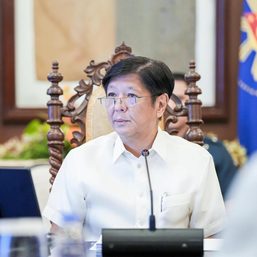
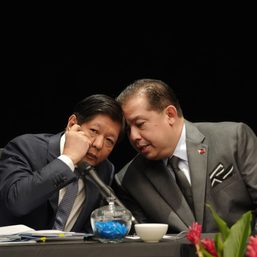






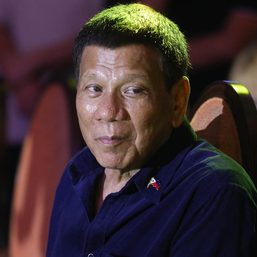
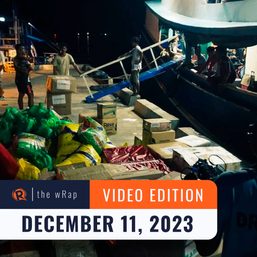
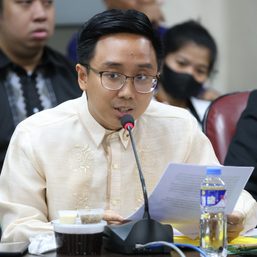
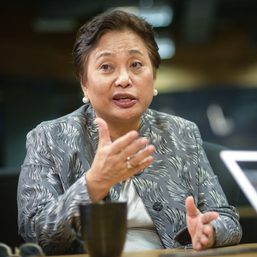
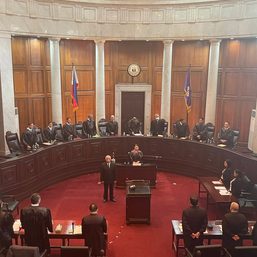
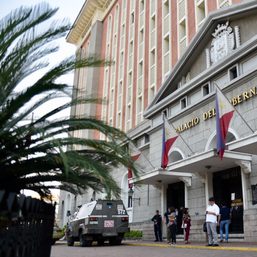
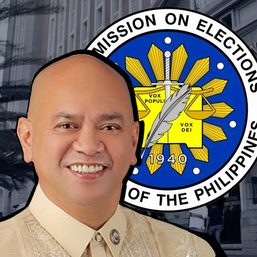
![[OPINION] Unpaid care work by women is a public concern](https://www.rappler.com/tachyon/2024/07/20240725-unpaid-care-work-public-concern.jpg?resize=257%2C257&crop_strategy=attention)

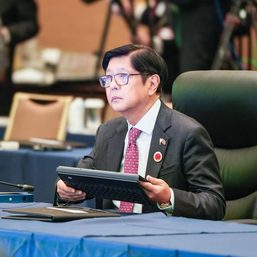

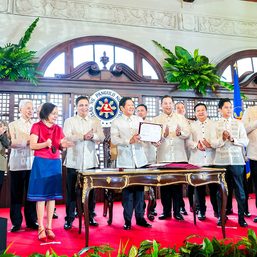


![[OPINION] Rodrigo Duterte and his ‘unconditional love’ for China](https://www.rappler.com/tachyon/2024/04/rodrigo-duterte-xi-jinping-august-2019.jpeg?resize=257%2C257&crop=91px%2C0px%2C900px%2C900px)
![[Vantage Point] China’s silent invasion of the Philippines](https://www.rappler.com/tachyon/2024/07/TL-china-silent-invasion-july-16-2024.jpg?resize=257%2C257&crop=318px%2C0px%2C720px%2C720px)

![[EDITORIAL] Ang ‘deep, deadly web’ ng POGOs](https://www.rappler.com/tachyon/2024/07/animated-pogos-chinese-crime-syndicate-carousel.jpg?resize=257%2C257&crop=280px%2C0px%2C720px%2C720px)




![[Rappler’s Best] Knowing when to leave](https://www.rappler.com/tachyon/2024/07/biden-sara-gfx.jpg?resize=257%2C257&crop_strategy=attention)
Thanks to Atty. Carlos Zarate for his enlightening and inspiring article entitled, “Fiscal firestorm and the confident crusaders for transparency.” We are indeed in a fiscal firestorm when budget prioritization is distorted in favor of CIF (P 10.14 Billion) than Rice Buffer Stocking Program (P9 Billion). Atty. Zarate also stated that “Calls for its scrapping (the CIF) are becoming louder among members of Congress,” but more likely this is for show only. The final showdown (and perhaps, magic?) will be at the Senate. He also stated: “Now, even the confidential funds of LGUs are also under close public scrutiny.” I can imagine how jittery VP Sara Duterte is – considering the disclosure of her confidential funds when she was the Mayor of Davao City. I believe that she is now spending a significant amount of her 2023 Confidential Funds on the following: 1) Finding out who leaked the information? (for retribution); 2) Bribing officials not to disclose new or additional details on the said funds. Lastly, if Atty Zarate calls “the members of the Makabayan bloc in the House of Representatives … as confident advocates for fiscal transparency and responsibility”; how should the opposing members be described? How about: More confident (because they belong to the “Tyrannical Majority”) advocates of Fiscal Opaqueness and Irresponsibility? Lastly, if “A working democracy thrives on transparency and accountability” then a working kleptocracy flourish on opaqueness and irresponsibility.